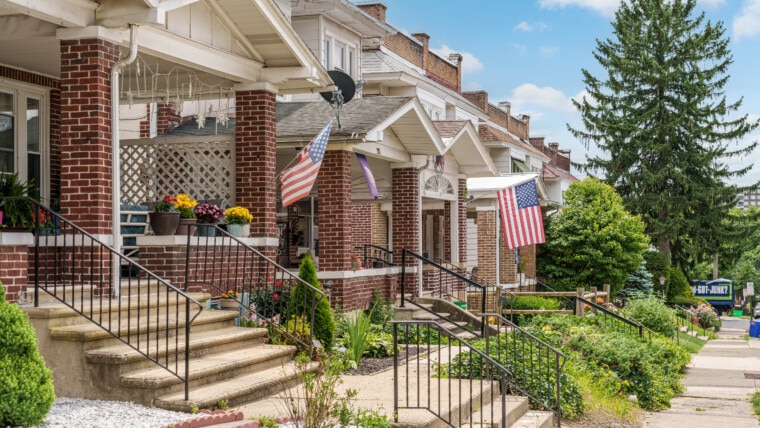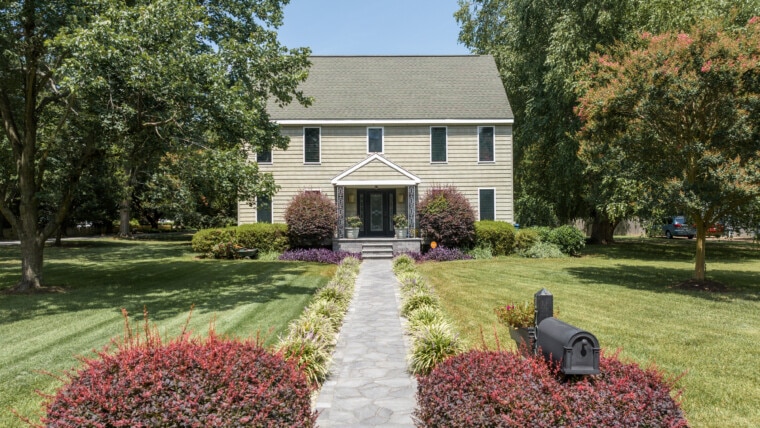Jumbo loans, or non-confirming mortgages, are intended for buyers who want to finance a home that exceeds the lending limits set by the Federal Housing Finance Agency (FHFA). As a result, a jumbo loan cannot be guaranteed by Fannie Mae or Freddie Mac, which are both regulated by FHFA.
This means that a lender carries more risk when they issue a jumbo mortgage because they are not protected against losses if a borrower defaults on the loan. The impact of that risk for homebuyers is stricter requirements to qualify, including a larger down payment and tougher credit score requirements than you’d find with a conventional mortgage.

The Difference Between a Jumbo Loan and a Conforming Loan
In the U.S., Fannie Mae and Freddie Mac buy home loans from private lenders, which helps improve the stability and affordability of the mortgage market. However, these government-sponsored enterprises only purchase “conforming loans,” which are mortgages that meet specific criteria, including the limits set by the FHFA.
Conforming loan limits vary by county, but in most places, the limit is $806,500 for 2025. In the country’s priciest regions, including New York City, Washington, D.C., Hawaii, and parts of California, the maximum loan amount is $1,209,750.
Jumbo loans exceed these limits, making them non-conforming loans that Fannie Mae and Freddie Mac can’t buy.
Jumbo Loans Are More Common in Expensive Cities
If you plan to finance more than your area’s conforming loan limit, you’ll need a jumbo mortgage to buy a home.
“Exceeding this loan limit is common in expensive cities or for luxury properties like multi-million-dollar homes, high-end condos, or large estates,” says Jim Breeze, senior vice president of Mortgage Product Development at PNC Bank.
Jumbo loans are often used where home values are similar to (or exceed) an area’s conforming loan limits. The San Francisco Bay area is one such example. According to the California Association of Realtors, the median home sale price in the region was $1,316,500 in November 2024. Meanwhile, the area’s conforming loan limit in 2024 was $1,149,825. A jumbo loan would be required for any mortgage above that amount.
4 Factors to Qualify for a Jumbo Loan
For lenders, jumbo mortgages are riskier than conforming loans. There’s more money involved, and since jumbo loans aren’t backed by Fannie Mae or Freddie Mac, the lender could face financial loss if the borrower defaults.
This makes the qualification criteria for a jumbo loan stricter than for a conforming conventional home loan. Here are some of the key differences:
1. Credit Score
Your credit score is one of the most important factors lenders will consider when reviewing your application for a jumbo loan. “The qualification criteria for jumbo loans vary from lender to lender, but it is common for jumbo loans to require a higher credit score than a conforming loan,” says Kendall Meade, certified financial planner at SoFi.
In most cases, you’ll need a score of 700 or higher (as opposed to 620, the minimum often required for a conventional conforming mortgage).
2. Debt-to-Income Ratio
Lenders also want to understand how much of your will income will go toward debt each month. They will review your debt-to-income (DTI) ratio to assess whether you can comfortably take on more debt with a jumbo loan.
“Typically, the maximum DTI would be 43%, but the lower, the better in terms of qualification and the best rates,” says Meade.
3. Down Payment
You can often get a conventional loan with just 3% down. However, the minimum down payment on a jumbo loan is generally higher. “Down payments can start at 10%, but this depends on the borrower’s financial situation,” says Breeze. If the lender determines your finances aren’t strong enough, you might need to put down 20% or more on a jumbo loan.
A larger down payment can also help you reduce your loan-to-value (LTV) ratio and secure a lower interest rate.
4. Cash Reserves
When applying for a jumbo loan, be prepared to prove that you have enough cash to repay your loan if you encounter financial hardship. At a minimum, you’ll want at least six months of cash reserves, but some lenders might require more.
“It’s preferred for borrowers to have enough to cover up to a year of mortgage payments,” says Breeze.
Additional Considerations with a Jumbo Loan
Interest Rates
Jumbo loans can have higher interest rates than conforming mortgages, but they’re often quite competitive. Bankrate’s most recent lender survey indicates that the current average interest rate on a 30-year fixed-rate mortgage is 6.89%. For a 30-year fixed-rate jumbo loan, it’s 6.94%.
Keep in mind that interest rates on jumbo loans vary by lender, your credit score and your financial profile. A high credit score and a low DTI ratio will help you get the best rates.
Loan Terms
Like conventional mortgages, jumbo loans have fixed or adjustable interest rates and various term lengths, including 15- and 30-year terms. Adjustable-rate jumbo mortgages generally have an initial fixed interest period of five to 10 years. After that, the rate typically changes once or twice per year, depending on the loan.
Closing Costs
When you buy a house, certain closing costs, including the origination fee, are calculated as a percentage of your loan amount. Since jumbo mortgages are larger than conforming conventional loans, Meade says they “typically have higher closing costs.”
Advantages of Jumbo Loans
- Financing for pricier homes: With a jumbo mortgage, you can borrow more than the conforming loan limit in your area. This might be necessary if you live in a high-cost area.
- Competitive rates: Jumbo loans sometimes have lower interest rates than conforming ones. Shop more than one lender to find the best rate.
- Flexible terms: Jumbo loans come in various term lengths, giving you some flexibility with your repayment schedule.
Disadvantages of Jumbo Loans
- Stricter eligibility criteria: It’s more challenging to qualify for a jumbo loan than a conforming mortgage. You’ll need a higher credit score, more income, a larger down payment, and significant cash reserves.
- Higher upfront costs: If you’re considering a jumbo loan, be ready for steeper closing costs and a 10% to 20% down payment. Before applying, you should also have six to 12 months’ cash reserves available.
The Bottom Line: Do I Need a Jumbo Loan?
A jumbo loan exceeds the conforming loan limits for its county. If you’re a buyer in an expensive area or a luxury real estate investor, you may need to explore jumbo loans as a financing option.
Each lender has its own loan terms and interest rates, so it’s essential to research before selecting one. Ask your real estate agent about lenders who have a proven track record with jumbo loans, and check out online reviews to get an idea of the borrowing experience. Compare rates from at least three lenders to ensure you get the best deal.
Taylor has more than a decade of experience in professional journalism. During that time, she has written about a variety of topics, including personal finance, real estate, homeownership and home improvement. She has written for publications and brands such as Bankrate, CNET and Angi.














